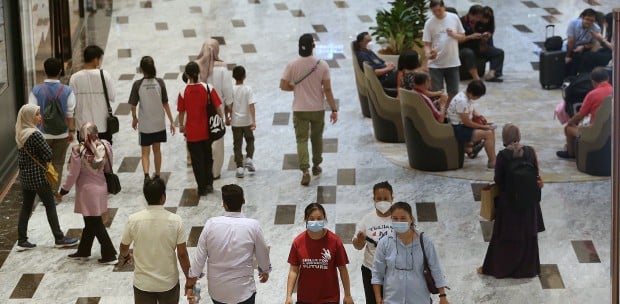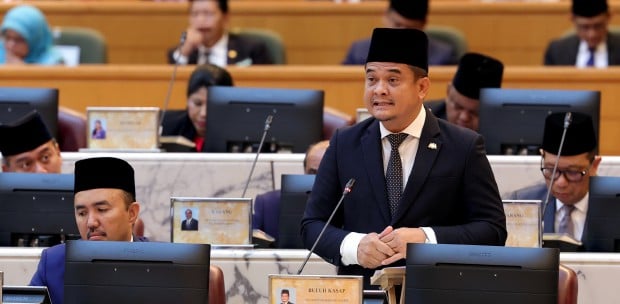NOT too long ago, I met an interesting Year One pupil at a children's home in heart of the city centre in Kuala Lumpur.
I wrote about the boy, who was an energetic, stick-thin seven-year old with dark brown eyes and sporting a neatly trimmed Afro hairstyle.
He did not at all look like your typical Malay, Chinese or Indian kid and I later learnt that he was an Orang Asli child whose parents lived in a remote village in Gua Musang, Kelantan.
They had given him up to be cared for by the children's shelter after a non-governmental organisation (NGO) convinced them it was in the best interest of the boy, who had the most interesting of nicknames - Battery.
I never found out what his real name was, but Battery apparently got his nickname due to his endless energy in bugging others to satisfy his curiosity about all the new things he was learning in his new urban surroundings.
The caretaker at the home related that had Battery stayed on with his parents in their remote village, he would have ended up not going to school or getting just the basics of education.
The situation faced by Battery is unfortunately not unique. There are many living in remote parts of the country - or those from hardcore poor families, who are deprived of all the head start in life enjoyed by the better-to-do children.
The Orang Asli child was fortunate that he had been plucked out from what would have been a vicious cycle of existence trying to rake out a living after being deprived of an education due to lack of opportunity.
The issue of fairness and opportunities in education has - for many years, been a contentious one.
It has evoked much animosity and anxiety among the people, and continues to be a hotly talked about issue with questions abound on the quota system for Bumiputera students and meritocracy in education.

Malaysians were again reminded of this not too long ago when a video clip of an exchange between a student and Datuk Seri Anwar Ibrahim on the topic started making its rounds.
Since then, the plight of high-scoring non-Malays being left out has again resurfaced and the prime minister also had to fend off similar questions even during engagement with local students during his overseas trips.
Most recently, he was asked about it during a question-and-answer session at the University of California, Berkeley when he was in San Francisco for the 2023 Asia Pacific Economic (Apec) Summit.
The prime minister acknowledged the need for fairness, but also pointed out a glaring disconnect over the issue among those living in the cities and those struggling to get a decent education.
He noted there were some who are obsessed with meritocracy at the expense of those requiring government assistance through affirmative action.
To drive home his point, Anwar reminded the audience about the reality of the situation in Malaysia and called on them to compare the difference between the best schools in Kuala Lumpur to those in places like Kapit, Sarawak.
He emphasised on the need to strike a balance between the two, before going on to say that one cannot have absolute meritocracy when there is no fairness.
"You can be a Malay, Chinese or Indian, but if you're poor, we deal with you as the issue of poverty is not race-based, but a need-based issue," he said, adding one should not just look at it from the viewpoint of dismantling rights and Bumiputera privileges.
Anwar frankly stated that meritocracy is flawed for disproportionately benefitting the privileged ones who are better poised to ace national exams compared to those - like Battery, who can thank their lucky stars for even getting an opportunity to go to schools.
It is not difficult to seen the situation the unity government has found itself in when it comes to dealing with such contentious issues.
On the one hand there are segments of the community - emboldened by political upheavals which has left no single party garnering the majority, who have high expectations for meritocracy to replace ethnic preferences.
However, on the other side, there are those who are accusing the unity government of abandoning the Malays.
A now-fallen government has been going round claiming to be the champion of Malay rights, exerting more pressure on an already volatile situation.
Less it be forgotten, the last Pakatan Harapan (PH) government collapsed in part due to a reform agenda Malay nationalists feared would undermine their special position in the constitution.
It is easy to see how while the government is trying to appease everyone, it has found itself being accused of disappointing everyone.
So what do we do? ...maybe its time everyone stopped treating issues of inter-ethnic relations like a zero-sum game with uncompromising stance adopted by all sides of the divide.
The country can ill afford to fall for provocative race baiting by those merely interested in dividing a fractured nation even further apart.






